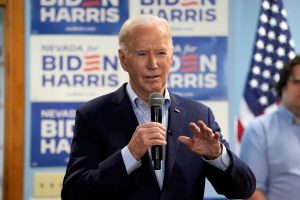
Downtown Boston coalition urges City Council to vote down Michelle Wu’s planning ordinance
A coalition of downtown residents is urging the Boston City Council to vote against a mayoral ordinance that would restructure the city’s planning department, while citing a number of concerns around financial transparency and oversight.
Ford Cavallari, chair of the Alliance of Downtown Civic Associations, sent a letter to city councilors on Tuesday, calling for a ‘no’ vote on what he described as the mayor’s “poorly written ordinance” that veers “far from” the roadmap she established for abolishing the Boston Planning and Development Agency in 2019.
“This ‘no’ vote would not indicate opposition to creating a city planning department,” Cavallari wrote. “Rather, a ‘no’ vote will allow the mayor to refile, and start another 60-day clock with the Council.”
While Cavallari praised the Council’s efforts to improve the text of the ordinance through a series of government operations committee hearings and working sessions chaired by Councilor Gabriela Coletta, he said the text still falls “far short of the serious reform required” for the BDPA.
Related Articles
Boston City Council eying charter change to avoid another New Year’s Day inauguration
North End restaurant owners protest outside St. Patrick’s Day breakfast: ‘We’re disgusted’
Boston Mayor Wu says migrant crisis will impact city budget
Boston Mayor Wu settles contracts with 2 largest civilian worker unions
Boston Police crime lab delays in testing sexual assault kits prompt City Council hearing
More time, Cavallari wrote, would allow for a “more robust series of edits” that “could cure” all of the problems highlighted in his letter, which states three keys flaws with the ordinance filed by Mayor Michelle Wu in late January — a measure aimed at creating the city’s first planning department in nearly seven decades.
Per the ordinance, BPDA staff and functions would move to the new planning department within City Hall. The Council would have budgetary oversight over the new department, and the mayor states that, among other changes, would ensure the same “accountability and oversight as all other city departments.”
Cavallari said, however, that there is “still inadequate, regular and publicly accessible financial transparency built into the planning and development process” through the drafted ordinance, even as amended in Council working sessions.
An annual report will not be sufficient to illuminate and control Boston’s dynamic development environment, he wrote.
“The City Council still ends up with even less oversight over planning and development, because the dangerous urban renewal powers, despite their ‘rebranding’ under the ‘equity, affordability and resiliency (EAR) moniker, are actually more autonomous, ambiguous and thus more dangerous,” Cavallari said.
He also criticized how the ordinance keeps an existing part of the agency, the BPDA board, independent from the accountability facing the new department.
Critics have jumped on that part of the plan, pointing to a white paper written by Mayor Wu when she was a city councilor that called for abolishing the BPDA. Her current plan has been pared down to a restructuring of the agency.
“The major change that was being proposed in that 2019 report was to take the planning board power out of the BPDA and put it back in the city of Boston,” Greg Maynard, executive director of the Boston Policy Institute, previously told the Herald. “The Wu administration’s current set of proposals does not do that.”
In the letter, Cavallari contends that what the mayor is seeking to create “isn’t a proper planning department because it lacks a city-controlled adjudicatory planning board, required for all Massachusetts cities including Boston,” although he points out that a 1960 change in law sent that function to the BRA for the Hub.
While the Wednesday City Council agenda lists the mayor’s ordinance as a matter recently heard for “possible action,” a Tuesday email from the Boston Policy Institute states that the body is not planning to take a vote until March 27, pointing to a timetable laid out by Coletta at a Monday working session.
The mayor also has legislation pending on Beacon Hill, approved by the Council last spring, that would legally restructure the BDPA.


